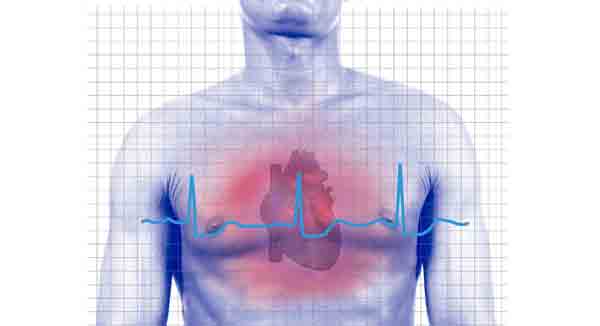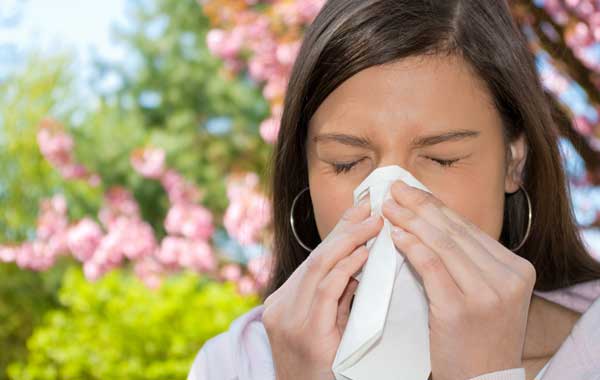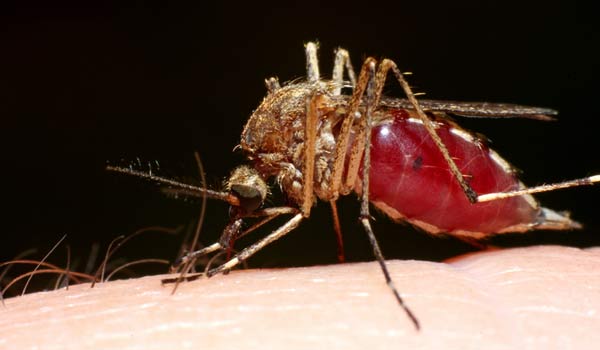5 Ways Climate Change Will Affect Your Health
Intro

Climate change isn't just bad for the planet, it's bad for your health, an abundance of research suggests. Here are five ways climate change can impact health.
Bad for the heart

Global warming will likely bring an increase in heat waves. Those could combine with the buildup of pollution , including ozone, a primary component of smog. Studies have shown high levels of pollution are linked to an increase in hospital admissions for cardiac problems.
And a new study found higher temperatures and ozone may act together to worsen heart health . The results show high temperatures in the summer months in a U.S. city are associated with a decrease in heart-rate variability, or how regular the time between heartbeats is, which acts as a measure of how well the heart is working. Low heart-rate variability is associated with an increased risk of death following a heart attack .
Air temperature and ozone may be bad for the heart because they influence the way the automatic nervous system functions. The automatic nervous system is a part of the central nervous system that helps the body adapt to its environment, according to the American Heart Association. It regulates body functions, including the heart's electrical activity and airflow into the lungs.
Higher temperatures may also make the body more sensitive to toxins, such as ozone, researchers say.
More allergies

Studies show allergies are on the rise in developed countries, including the United States, which could be due, in part, to rising carbon dioxide levels and warming temperatures.
A 2005 study found that plants are flowering earlier in the year, and total pollen production is increasing. A more recent study in Italy found that not only had pollen levels increased in the area, but the populations' sensitivity to pollen had increased as well. While genetics plays a large role in all allergies, a longer and more intense pollen season could exacerbate symptoms.
Get the world’s most fascinating discoveries delivered straight to your inbox.
Extreme events

Global warming may bring an increase in extreme events, including heat waves, floods and large storms, which could come with high death tolls. Heat and drought are amongst the deadliest natural disasters. A study that reviewed weather disasters in the United States since 1980 found the top two killers were heat waves and the drought that comes with them.
And heat waves may be getting worse. A study in 2007 found heat waves in Europe are nearly twice as long as they were 100 years ago. The region was struck with a mega heat wave in 2003 that killed about 70,000 people. Such mega heat waves could increase by a factor of 5 to 10 in the area, a recent study found.
More deserts

The improper use of land coupled with climate variations may lead to an increase in global desertification, or the degradation of soil in dry areas. A 2010 study found 38 percent of the world is made up of arid areas at risk for desertification. Once degraded, the soil becomes unproductive. This may limit the land that can be used for agriculture to feed the world's growing population.
Global desertification could also boost growth of harmful bacteria in the ocean. Desert dust supplies iron to the ocean, which many marine organisms need to live. A study presented at this year's meeting of the American Association for the Advancement of Science in February found desert dust fueled the growth of Vibrios, a group of ocean bacteria that cause gastroenteritis and infectious diseases in people.
"Within 24 hours of mixing weathered desert dust from Morocco with seawater samples, we saw a 10- to 1000-fold growth in Vibrios, including one strain that could cause eye, ear and open wound infections, and another strain that could cause cholera ," study researcher Erin Lipp, a graduate student at the University of Georgia, said at the meeting. An increase in this type of bacteria could mean more people become ill as they are exposed to contaminated seafood.
Disease spread

Increases in heat and rainfall in certain areas brought on by climate change may make conditions ripe for disease spread.
Certain vector-borne diseases illnesses in which a host organism, such as an insect, carries and transmits a disease-causing agent are particularly affected by varying weather and hotter temperatures. Because these vectors are cold-blooded, they rely on their surrounding environment to control their internal heat. So an increase in temperature would potentially favor insect life, and possibly allow the spread of certain diseases, such as malaria, into new areas.
Rainfall is also thought to benefit insect life, and several studies have linked increased rainfall to disease outbreaks, particularly waterborne diseases.

Rachael is a Live Science contributor, and was a former channel editor and senior writer for Live Science between 2010 and 2022. She has a master's degree in journalism from New York University's Science, Health and Environmental Reporting Program. She also holds a B.S. in molecular biology and an M.S. in biology from the University of California, San Diego. Her work has appeared in Scienceline, The Washington Post and Scientific American.


